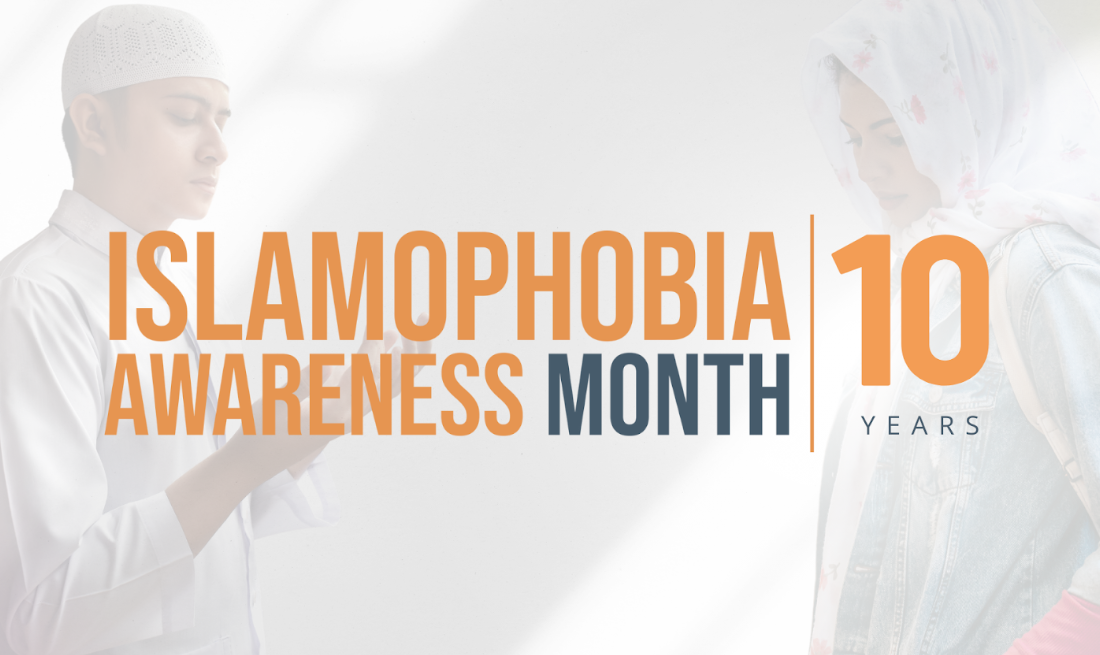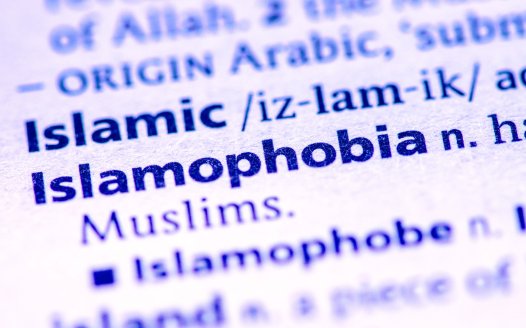Time for an Islamophobia self-awareness month
Posted: Thu, 17th Nov 2022 by Jack Rivington
Recent incidents reveal pushing the term 'Islamophobia' is less to do with challenging genuine anti-Muslim bigotry, and more to do with controlling speech around Islam – including excusing extremist behaviour, says Jack Rivington.
November has seen a noticeable increase in the use of the expression 'Islamophobia' by politicians and public figures. Afzal Khan MP described it as an "insidious hatred" in a parliamentary point of order, Labour party chair Annelise Dodds wrote to her opposite number Nadhim Zahawi demanding the government take greater action to address it, and Baroness Warsi accused the Conservative Party of being in denial over the extent of the issue.
This extra attention coincides with the annual observance of 'Islamophobia Awareness Month' (IAM) campaign, the stated intention of which is to bring about a "society free from Islamophobia in all its forms". However, what IAM considers to be amongst those forms should be of concern to all, especially those within the political establishment who have lent the campaign, and concept, their support.
In one respect, a call to address anti-Muslim discrimination is justified. In the year ending March 2022, 42% of religious hate crimes involved Muslims as the perceived target group, with an increase of 28% in the total number of cases over the previous year. This makes Muslims the largest group by some margin, though it should also be noted that in 23% of cases British Jews were the target, despite their population being approximately one tenth that of Muslims.
No matter the numbers, freedom of religion and belief is a fundamental human right that must be maintained and fought for in a secular and democratic society. This is as much the responsibility of citizens as it is of government, and it is therefore right that we all remain mindful of the abuse faced by British Muslims. A campaign with this as its goal would be uncontroversial.
However, it is clear that some advocating for IAM do not have this as their sole purpose and are instead using the campaign to promote a concept of Islamophobia which reclassifies legitimate discussion and critique as racism or hate speech.
One such organisation is the pressure group 'Muslim Engagement and Development' or MEND, which has been accused of supporting an Islamist agenda. A co-founding organisation of the awareness month campaign, many of its employees, including members of the senior leadership, have faced accusations of extremism, including legitimising the killing of British troops in Iraq, promoting antisemitic conspiracies, and downplaying acts of terrorism.
MEND has also sought to undermine the Prevent counter-extremism strategy – which it has described as 'Islamophobic' – by spreading misinformation that the program deliberately targets Muslims. They have been joined in this effort by the National Association of Muslim Police (NAMP), another supporter of the IAM campaign which recently claimed "institutional Islamophobia" was an issue within counter-terrorism policing. The association further called for the term 'Islamist' to be scrapped due to its unfair stigmatisation of Islam, a ridiculous demand which demonstrates a startling instance of mistaken priorities. The association's capacity for offense would be far better redirected towards the extremists themselves – if anyone, it is they who are giving the religion a bad name, not those who record and monitor their activities.
Concerningly, the sentiments expressed by NAMP are also to be found in All Party Parliamentary Group (APPG) on British Muslims' report setting out its definition of Islamophobia. In a section setting out why instances of Islamophobia are not confined to hate crimes, but also include more general behaviours or attitudes, the report approvingly quotes a claim that opposition to Islamism can be a constitutive part of Islamophobia. According to that view, as Islamism can be viewed as the advancement of Islam as a political system, secular opposition to such religious interference is Islamophobic.
It is this APPG definition which advocates of the IAM wish to see adopted by all organisations and government bodies as the proper understanding of 'Islamophobia' – and indeed, many local governments and political parties already have.
Other instances of 'Islamophobia' as identified by MEND include criticising those who protested against the film 'The Lady of Heaven' in June. Despite the anti-Shia sentiment reported at many of these protests, as well as the implied threat towards cinemas and their staff, MEND said that those who described protests as "dangerous and harmful" exemplified "structural Islamophobia". According to MEND, it isn't those who chant sectarian slogans targeting other Muslims who are guilty of a hate crime, just those who are concerned by it.
Another set of protests MEND was keen to support were those in Batley, which last year saw demonstrations outside a local school after a teacher used cartoons from the Charlie Hebdo magazine depicting Muhammed to teach about the issue of blasphemy. MEND described the cartoon as both "Islamophobic" and "extremely offensive", with the school eventually pressured into suspending the teacher before making a frightened apology. Although MEND said they condemned threats to both the staff and school, the teacher was ultimately driven into hiding and remains unable to resume a normal life.
Whilst it would be nice to know whether members of parliament such as Keir Starmer and Angela Rayner – who were photographed alongside Khan with a 'Labour against Islamophobia' placard in hand – agree with groups such as MEND on what constitutes Islamophobia, such clarifications are now irrelevant. 'Islamophobia' is irretrievably linked to the suppression of entirely legitimate speech and is unsalvageable as a useful term.
This is unsurprising given the historical origins of the idea of 'Islamophobia'. Between 1999 and 2010, a series of resolutions regarding the 'defamation of religion' were presented at the United Nations which introduced the term for the first time. Originating with the Islamist organisation the Muslim Brotherhood, these resolutions were pushed by a coalition of 57 Islamic nations known as the Organisation of Islamic Cooperation and constituted an attempt to introduce a blasphemy law on an international scale. The campaign was opposed at the time by western democratic nations on the grounds such resolutions were incompatible with the human rights to freedom of speech, belief, and religion.
It is therefore strange to see members of parliament for one of those western democratic nations getting onboard with a campaign promoting the idea. This understanding, that 'defamation' of the religion of Islam is itself Islamophobic, has never gone away, as evidenced by its continued usage in that context by organisations such as MEND.
Furthermore, the term is now not only being deployed to suppress criticism of Islam as a religion, but also as a cover for hateful actions perpetrated by individual Muslims. This month, the president of the National Union of Students, Shaima Dallali, was dismissed from the role following an investigation into accusations of antisemitism. Despite admitting to making a number of antisemitic posts on Twitter, for which she has apologised, Dallali attributed her dismissal to 'Islamophobia', which rather seems to undermine her apology. A number of organisations echoed her claim including the Muslim Association of Britain and the Muslim Council of Britain. Both are listed as supporters on the IAM website.
This accusation, presented without any evidence, that Dallali is herself a victim of discrimination when she is simply facing the consequences of her own conduct, is an outrageous attempt on the part of all involved to excuse her actions. The involvement of organisations central to IAM in such allegations should be sufficient to discredit the entire campaign, as well as any notion they are concerned with anti-racism or improving community relations.
The important work to tackle genuine instances of anti-Muslim discrimination and abuse is also tarnished by these poorly disguised attempts to deflect criticism from a religious and political agenda by designating such critiques bigoted or racist. Those involved should be ashamed.
The time is long overdue for those who have lent their support to the concept of Islamophobia to issue a clarification. Do they agree with the organisations behind IAM on what constitutes Islamophobia or not, and will they distance themselves from the term or continue to act as useful idiots?
Update 14/12/2022: After being contacted by the NSS regarding the National Association of Muslim Police's proposed changes to counter-terrorism terminology, the Home Office and College of Policing have confirmed that there are "no plans" to make any such changes and that current terminology is both "accurate" and "fit for purpose".
Freedom of Expression
Democracy cannot exist without the right to free speech. Join our campaign to protect freedom of expression from religious incursions.








